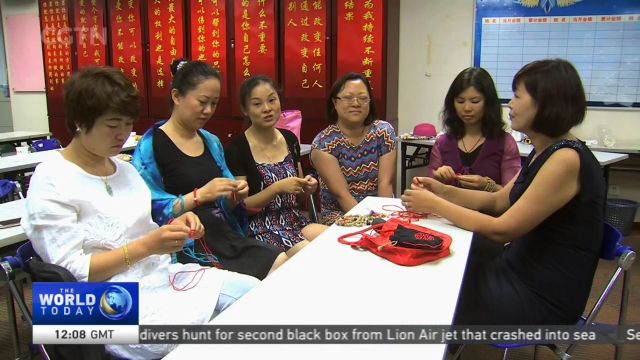
22:06, 03-Nov-2018
Protecting Women's Rights: China's National Women's Congress concludes, outlines future objectives
Updated
21:01, 06-Nov-2018
02:53

The All-China Women's Federation has wrapped up its first major meeting in five years, as it outlined its goals for the future. President Xi Jinping met with its newly-elected leaders on Friday. CGTN reporter Feng Yilei looked at what lies tasks lie ahead for the federation.
Protecting women's rights in China has been a long-term battle against a contentious history of repression.
Challenges vary when it comes to fighting for women's rights, and arise in various spheres of society. That includes employment, property ownership, and even rights that concern a woman's body.
After the first Anti-Domestic Violence Law took effect in 2016, many saw this as a legal savior to what has long been described as a horror in many Chinese households.
MA YINAN, LEGAL PROFESSOR AT PEKING UNIVERSITY EXECUTIVE MEMBER, ALL CHINA WOMEN'S FEDERATION "The All-China Women's Federation was the first to advocate for the law. It had organized many experts to research the need for such a law, before finally forming a legislative proposal based on the review of anti-domestic violence activities. The federation continues to actively follow the law's regional implementation and identify where and how it can be improved."
Lyu Xiaoquan is a lawyer that has helped countless victims over the years.
His team has joined hands with the federation, and together, they have launched projects to help those in need.
LYU XIAOQUAN, EXECUTIVE DIRECTOR BEIJING QIAN QIAN LAW FIRM "The Women's Federation works closely with the authorities. There are plenty of resources available, but they may not have enough fieldworkers or specialists for certain types of work. Together we double the results."
But Lyu believes problems remain. Taking a legal document such as this one, and putting it into practice isn't so easy. Whether a victim should turn to the courts, police or a neighborhood committee, is also unclear in some cases.
LYU XIAOQUAN, EXECUTIVE DIRECTOR BEIJING QIAN QIAN LAW FIRM "The legislation is a good example of mass participation in women's rights activities under the government's lead. But when we look at how relevant parties claim and fulfill their responsibilities, I feel we still have a long way to go."
And domestic violence is just one example.
In the past five years, the women's federation has been working on a wider range of women's rights issues, including sexual crimes, employment discrimination, childbirth risks and domestic disputes.
It appears to be necessary for governmental and judiciary bodies as well as other organizations to jointly build a long-term relief mechanism to protect those that are vulnerable.
FENG YILEI BEIJING "Experts also say gender inequality deeply rooted in social concepts and a weak awareness of legal rights are the underlying obstacles for women to protect their rights. And to cross over that also requires joint efforts from all sectors of the society."
FYL, CGTN, BJ.

SITEMAP
Copyright © 2018 CGTN. Beijing ICP prepared NO.16065310-3
Copyright © 2018 CGTN. Beijing ICP prepared NO.16065310-3